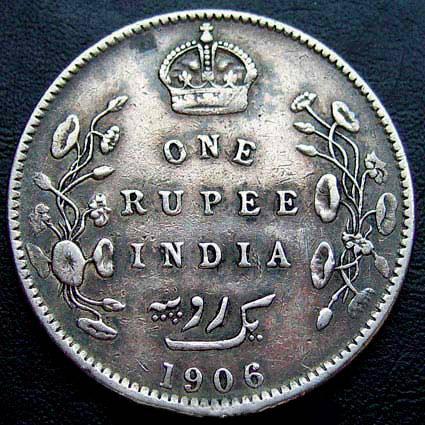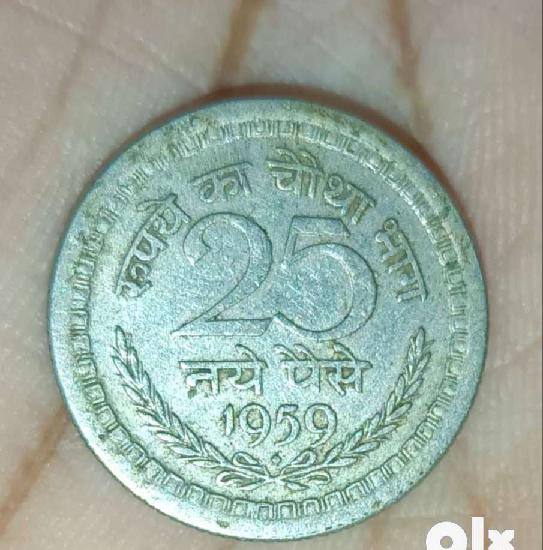Indian coinage
Top sales list indian coinage

India (All cities)
The Edward VII series of coins of India are dated 1903-1910. No Gold coins were issued during the reign of Edward VII. There are four silver coins (Rupee, 1/2 Rupee, 1/4 Rupee and 2 Annas) and three copper coins (1/4 Anna, 1/2 Pice and 1/12 Anna). A Cupro-nickel 1 Anna coin was introduced in 1906... But this is a 1 Rupee Coin... dated back to 1906 On 01 Aug, 1906, the copper coins were replace by bronze issues with the same obverse and reverse designs but a thinner plancet due to the rising international prices of copper. The 1906 coins come in both varieties... This is a Silver made Another special feature of the coinage of this period was that,in all the silver coins the inscription was in both English and Persian, compared to Victoria coins that showed only English. The King Edward VII coins are distinct as the head is uncrowned. The apparent explanation is, though Queen Victoria died on 22 January 1901, Edward's coronation was not held till 9 August 1902. The master dies were created before the coronation, so it was not possible to show him wearing the crown. Obv. Description - Edward VII face Rev. Description - Crown, Flower and written in English Weight - 11.6000 g Material - Silver Orientation - Coin Mint - Purely Mint Edge Type - Reeded Thank You.
See product

Navi Mumbai (Maharashtra)
The 25 paise coin from 1959 holds historical significance as a part of India's currency evolution. On its obverse side, you would likely find the numerical value "25" denoting its denomination, often accompanied by the term "PAISE" in English or Devanagari script. Surrounding this central motif, there might be intricate decorative patterns or designs typical of Indian coinage from that era.
The reverse side commonly features the national emblem, the Ashoka Lion Capital, encircled by the words "Satyameva Jayate" in Devanagari script, symbolizing the nation's ethos of truth prevailing. Additionally, the year of minting, "1959," would usually be inscribed on the coin, indicating its vintage.
These coins were typically minted using materials like copper or brass and would have a diameter of around 22 mm. Over time, due to circulation and wear, the coin's appearance might have been affected, but it remains a tangible artifact representing the economic and cultural context of India in the late 1950s.
See product
